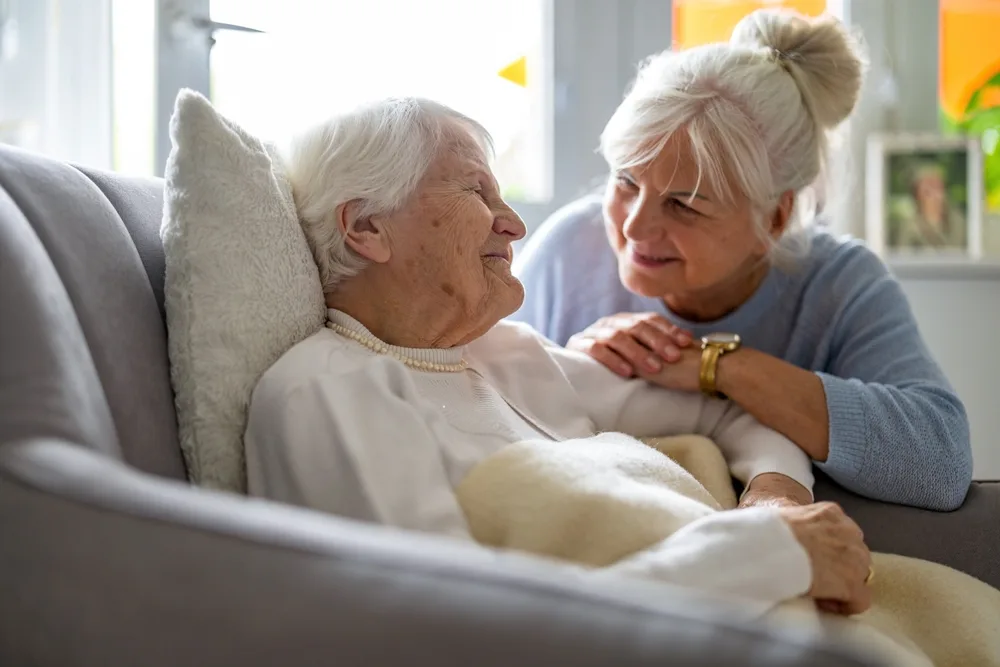Working with the elderly requires a different set of skills and knowledge to ensure that they receive the appropriate support. This aged care counselling course considers the different issues that are faced by older people, such as bereavement, chronic illness, terminal illness and death, and how to provide them with appropriate support. The transition from independence and health to aged care and disability can often happen with great speed. There is a need for a formal education on this subject because often families and the aged themselves are unprepared for the changes that occur – either from deteriorating health or aging. Compassion and understanding are crucial for anyone working with the elderly.
This is an online course suitable to the needs of those who are providing support to the elderly in both a professional or informal way and who would like improve their skills and understanding of the issues facing the elderly and their families at their own convenience through distance learning. Through this course, you will learn how to counsel the elderly and those suffering from dementia and other diseases, learn what happens to a person’s state of mind as they age, discover ways in which a counsellor, carer or anyone else might interact with and support an older person, expand your knowledge and skills for professional development; or to better help those around you.
This course is highly recommended to anyone working in nursing homes, aged care, counselling, community services or anyone who has to help someone with age and health related issues.
Course Aims:
- To discuss theories of ageing, and to develop an understanding of the different stages of human development.
- To describe the psychological impact of changes which occur as a person reaches old age
- To understand the effect of physical health problems on older people.
- Describe the nature and scope of support services, including counselling, for the elderly.
- Describe a range of solutions that can enable an elderly person to adapt to changed circumstances in order to continue performing tasks or pursuing interests that are becoming increasingly difficult for them.
- Explain how a variety of counselling techniques can be applied to specific Grief and loss situations for counselling elderly persons.
- Develop a strategy for counselling an elderly person who has been diagnosed with a debilitating or terminal illness.
- Develop a strategy for counselling an elderly person who has lost a loved one.
- Determine when and how to intervene in the life of an elderly person.
Detailed Course Outline
There are 9 Lessons in this course:
1. Understanding Ageing
-
- Gerontology
- Ageing (Definition)
- Population Ageing
- The Effects of the Ageing Population
- Theories of Human Development
- Erikson’s Theory of Development
- Levinson
- Theories of Retirement
- Disengagement Theory
- Activity Theory
- Atchley’s Model of Retirement
2. Lifestyle Changes
-
- Relationships – with Children, with Partners (Husband/wife), with Grandchildren
- Friendships
- Sexuality and Older People
- Cognitive Changes
- Intelligence
- Depression
- Determining Type of Depression
- Unipolar and Bipolar Disorders
- Causes of Depression
- Risk factors for Depression
- Men and Depression
- Symptoms of Depression
3. Deterioration of Health
-
- Physical Changes (Skin, Hair, Height, Senses)
- Reflexes
- Sex
- Chronic Health Problems – Osteoarthritis, Rheumatoid Arthritis, Gout
- Exercise
- Diet
- Nutrition
- Pain relief
- Medication
- Stress
4. Support Services
-
- Preventative Services
- Occupational Therapists
- Physiotherapists
- Complimentary Practitioners
- Counselling Professionals
- Other Support Services (e.g. Meals on Wheels, Funeral Services)
5. Enablement Techniques
-
- Common Risks for Elderly: Risk of Falling, Vision, Hearing, Nutrition, Sexuality.
- Techniques to maintain Quality of Life: Driving a car, banking, shopping, house cleaning, Gardening, Socialising, Pets, Exercise, Sports
6. Grief and Loss Counselling
-
- Grief (Definition)
- Psychological aspects of Long Term Grief
- Family, Work, Financial, Loneliness, Morality after bereavement
- Counsellors Response and Intervention
- Practical Intervention, Depression
7. Debilitating and Terminal Illness
-
- Dementia
- Kinds of Dementia (Alzheimer’s, Vascular Dementia)
- Strategies for Counselling the Demented Client
- Communication, Daily Activities, Sleeping Difficulties, Hallucinations and Delusions, Wandering, Depression, Terminal Illness: Patients Response, Anxiety, Depression, Guilt & Anger, Defense Mechanisms.
- Preparing for Approaching Death; Practical Preparations, Emotional Responses, Responses of Friends and Family
8. Losing a Loved One
-
- Importance of Loss
- Assessment
- Role of the Deceased
- Death of a Child
- Stigmatised Death
- Co-Morbidity. Counselling Strategies: Bibliotherapy, Use of Rituals, Bereavement Support Groups.
- Special Therapeutic Situations: Traumatic, Sudden, and Stigmatised Loss, Ongoing Support, Social Stigmas of Suicide
9. Ethics and Intervention
-
- Barriers to Aged Care Counselling
- Addressing the Client’s Needs
- Common Legal and Ethical issues in Aged Care: Decision Making Capacity, Competence, Informed Consent, Confidentiality, Euthanasia

